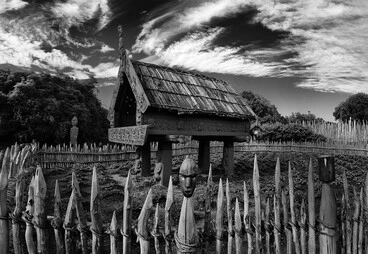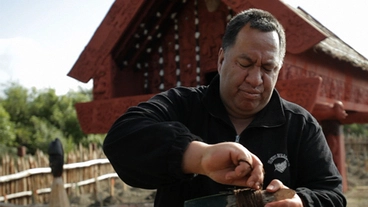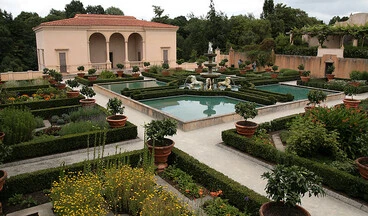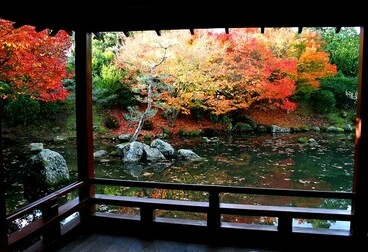Hayes Paddock
A DigitalNZ Story by Vicki S
Hayes Paddock in Hamilton East was developed as a garden suburb between 1939 and 1945. More than 200 state houses were built there, many of which are unchanged on the outside. The area is now protected as a heritage precinct.
Hayes Paddock
Hayes Paddock in Hamilton East was developed as a garden suburb between 1939 and 1945. More than 200 state houses were built there, many of which are unchanged on the outside. The area is now protected as a heritage precinct.
Hayes Paddock incorporates wide open spaces with planted esplanade reserve and is used as a through route on the walkway/cycleway connection to Hamilton Gardens. The beach at Wellington Street is located at this reserve and is used for swimming during the summer. It is the city’s most popular river swimming location.
Hayes Paddock Houses: Te Ara - The Encyclopedia of New Zealand
Hamilton east of the river
Manatū Taonga, the Ministry for Culture and Heritage
Hamilton, Waikato Region, including the Waikato River and state housing at Hayes Paddock
Alexander Turnbull Library
State houses at Hayes Paddock, Hamilton, with Waikato River
Alexander Turnbull Library
State Houses
A valued and iconic feature of the New Zealand landscape, the state houses of the 1930s and '40s remain a distinctive feature of most towns and cities, immediately recognizable by their cottage-style windows and hipped, tiled roofs.
Built from the best materials of the day and designed by architects, state houses embody simple and robust, yet enduring design. Hayes Paddock is one of the best examples throughout New Zealand of a realtively intact, architecturally coherent group of houses that exemplify the state housing ideals of the 1940s.
Hayes Paddock Houses: Te Ara - The Encyclopedia of New Zealand
Hayes Paddock houses
Manatū Taonga, the Ministry for Culture and Heritage
This example is in the Hamilton suburb of Hayes Paddock, Jellicoe Drive, Hamilton East
State house, Hamilton
Manatū Taonga, the Ministry for Culture and Heritage
Hamilton state houses
Manatū Taonga, the Ministry for Culture and Heritage
Para Matchitt with his daughters at home in Hamilton
Alexander Turnbull Library
First State House
Manatū Taonga, the Ministry for Culture and Heritage
Houses, possibly Ngaruawahia; Para Matchitt sculpting on the porch of his house, Hamilton
Alexander Turnbull Library
Hamilton East: One of Hamilton's oldest suburbs
One of Hamilton’s oldest suburbs, from the 1870s until the mid-20th century, Hamilton East was known by some as ‘Irishtown’ because a significant number of the militiamen who settled there were of Irish descent. Hamilton East’s main street, Grey Street, named after Governor George Grey was originally destined to be the main street of Hamilton. Evidence of planning for the center of the village can be seen in the ‘village square’ concept of Steele Park, named after militia officer William Steele, and the English trees surrounding the park and along Grey Street.
Renaming of Hamilton's Streets
Knowledge of the past and a need to embrace a new future has created a better understanding of the appropriateness of street names and has resulted in the recent change of Hamilton East's Von Tempsky Street, named after Gustavus von Tempsky to Puutikitiki Street and the nearby Dawson Park to Te Wehenga Park. While it is true as the saying goes, "Those who cannot remember the past are condemned to repeat it." A Historical Report on Hamilton Street and City Names, written by respected historian Vincent O'Malley, June 2020, clearly outlines Gustavus' involvement in war atrocities.
The new te reo Maaori names serve as an opportunity to revive original place names that have a closer relationship to the whenua (land), reflect the area’s history and are significant to mana whenua.
New names for street and park recognise city history, 26 June 2022.
Rau Hoskins explores the origins and meaning of the Pataka.
Whare Māori - The Wharenui (Episode Two)
NZ On Screen
Wellington Street Beach, Hamilton East
Waikato Museum Te Whare Taonga o Waikato
Garden Suburb
Hayes Paddock incorporates wide open spaces with planted esplanade reserve and is used as a through route on the walkway/cycleway connection to Hamilton Gardens. The beach at Wellington Street is located on this reserve and is used for swimming during the summer. It is the city’s most popular river swimming location.
Hamilton Gardens
Also in Hamilton East, Hamilton Gardens is Waikato’s most popular visitor attraction, with over one million visitors and over seven hundred events each year. Te Parapara Pa was located on the Hamilton Gardens site. The pa was occupied by Ngati Wairere. The garden was renowned as a site of sacred rituals associated with harvesting food crops. There stood a Tuahu (sacred altar) called Te Ikamauroa at the pa.
Hamilton Gardens, Hamilton, NZ
Manatū Taonga, the Ministry for Culture and Heritage
Autumn in the Japanese Garden
Manatū Taonga, the Ministry for Culture and Heritage
Indian garden, Hamilton Gardens
Manatū Taonga, the Ministry for Culture and Heritage
Further reading
Hayes Paddock design guide. (2006). Hamilton, New Zealand: Hamilton City Council.Heritage Hamilton: A celebration of the city's historic buildings. (2006). Hamilton, New Zealand: Hamilton City Council.McEwan, A., Et al. (2008). The houses of Hayes Paddock. Hamilton, New Zealand: Ramp Press.
Days of future past: How Hayes Paddock could have been a golf course. Waikato Times. (2025)










